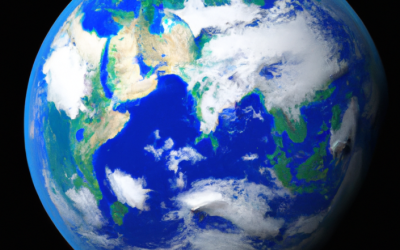We just posted an interesting commentary about sea levels and global warming by an American meteorologist with an interest in ancient city sites in Europe and Asia. Robert Endlich observes that declining global temperatures caused the polar ice cap to grow causing sea levels to fall –
“Those rising oceans created new ports for Greek and Roman naval and trade vessels. But today many of those structures and ruins are inland, out in the open, making them popular tourist destinations. How did that happen? The Little Ice Age once again turned substantial ocean water into ice, lowering sea levels, and leaving former ports stranded. Not enough ice has melted since 1850 to make them harbors again.
The ancient city of Ephesus was an important port city and commercial hub from the Bronze Age to the Minoan Warm period, and continuing through the Roman Empire. An historic map shows its location right on the sea. But today, in modern-day Turkey, Ephesus is 5 km from the Mediterranean. Some historians erroneously claim “river silting” caused the change, but the real “culprit” was sea level change.”

In 2011 I had the opportunity to travel to Turkey, where we visited Ephesus and other ancient, abandoned cities. Here is a picture where I am standing in the stadium that graced the ancient city of Miletus, a place many scholars describe to be the birthplace of philosophy. The site is thousands of years old and its hey day as a trading centre, it indeed was on the waterfront possessing a magnificent harbor. The local narrative, of course, blamed silting for the city’s eventual decline and abandonment.
The takeaway from the article is – Sea level is a dynamic property in our planet’s climate cycles, which are closely linked to changes in solar energy output and other natural factors. It is unlikely to change in response to tax policies that make energy more expensive and economies less robust – no matter what politicians in Washington, Brussels or the United Nations might say.


